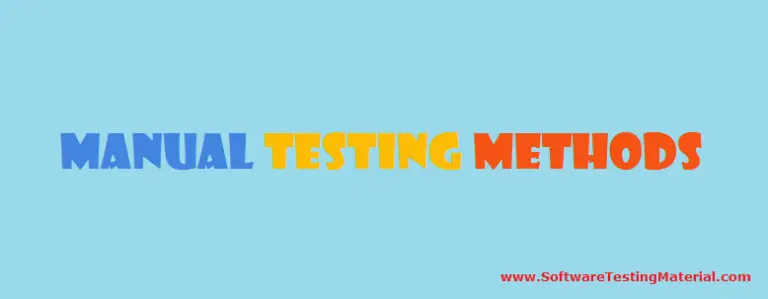20 Skills Of Highly Effective Software Tester

Software testers should possess certain skills to be highly effective in delivering quality products and stay ahead in their career.
Every software tester should handle a variety of tasks such as examining requirements, coming up with a test plan, setting up a test environment, executing cases and reporting bugs, etc.
But a tester’s duty is not just bound by the above tasks, it includes much more.
Must-Have Skills of Every Software Tester
This article contains what are the skills required for being a highly efficient software tester along with a practical guide for acquiring those skills.
#1. Excellent communication skills
Testers have to communicate with several stakeholders both verbally and in written format.
Thus conveying your thoughts and ideas about the problem and solution should be very clear and precise.
A highly effective software tester should have the ability to explain the issue in technical terms and in plain English based on the stakeholder. They should know-how, what, and when to communicate with each role, as it is just as important as the testing itself.
You should be able to convey the bug or process improvement to your fellow testers, developers, managers, designers, clients, sometimes even the CEO.
You should possess excellent communication skills to deliver such messages in meetings and email communication. Good communication can be crucial for a tester’s career as such skills can give you a boost in recognition, regards, and respect.
- Write bug reports that are objective, anyone in the organization should be able to understand it.
- You can provide insights and suggestions for the improvement of the product from a customer’s perspective in a factual manner.
- You should make sure that the mails you are sending to stakeholders are error-free, you can even approach a peer for proofreading those mails.
#2. Automation & coding skills
Highly skilled software testers always prefer to automate repetitive tasks to save time and efficiently use resources in their team. They have good coding skills , develop automation scripts and frameworks that focus on regression and monotonous tasks. Such automation skills can help the tester to grow in their career and take up new responsibilities in the organization.
Manual testing can be quite a handful for testers, each release has different areas to focus on, there are times when a component is completely ignored which later causes a huge delay in the delivery. These things can be easily avoided if we automate the stable part of the system so that we can focus on different areas of the new feature.
- You should have basic programming knowledge
- Upskill your knowledge by learning Selenium, Java, TestNG, Jenkins, etc.
- Keep an eye on basic features that can be automated
- Start by automating small features and then move to bigger ones
- Build your own automation framework
Before going to read the next skills, don’t miss the following posts.
- Types of Test Automation Frameworks
- How To Explain Test Automation Framework In An Interview
- Popular Test Automation Interview Questions
#3. Think Analytically
A pragmatic software tester embraces thinking analytically about the problem at hand. This analytical thought process helps you to identify the problem and create a strong strategy to deal with the system.
While testing software, it is vital to analyze the given product, how the component and units interact with each other, to have a logical mind map of how the system works.
The developing team could only test the product based on its functionality, whereas a tester would dive deep into the logic of the system and analyze a product very intricately. Such complex thinking and problem-solving skills might help in identifying the loopholes in the system.
- You should be ready to break down the problem into small parts and examine each element of the problem and its relationship, before creating a solution.
- You should possess good analytical skills i.e could collect & analyze information, problem-solve & make decisions
#4. Sharp Eye for detail
Good testers possess attention to detail.
A tester’s scope doesn’t end with just identifying the obvious issues that they face while testing, our scope extends to bring high quality to the software, so even the smallest bug counts.
Because such minor bugs can affect other parts of the system or even create changes in a different part of the system.
Being a tester you might encounter several repetitive interfaces, you might have to work with the same feature for months, it is easy to miss a minor bug or a small change in such monotony. But a highly effective tester would catch such minute detail, as they possess the skill of giving attention to small details.
- You should have a clear idea about the requirements, changes that are made in the product, assess the impact of the bug fix, and have the perspective of a user.
- Develop the habit of listening to every conversation related to change in the system, both major and minor, and observe the product’s behavior based on the change.
- Note down all the important changes that happen in the system and check them during the test cycle.
#5. Focus on the quality
Quality is a crucial factor any tester should focus on from day one. They never compromise on the quality of the product.
Even with short deadlines and high quality of features to test, they always try to bring quality to the product.
In testing circles, they say quality should be in the DNA of every tester.
In a dynamic environment like a startup, there might be several features to be tested in a short sprint cycle, it is not ideal to analyze every nuance of the product but doing just sanity would be counterproductive in such a situation.
There can be a myriad of things that could go wrong but that should not affect the quality of the product, it is the tester’s mission to improve the quality of the product.
- You should report the bug or clarify the issue with your test lead when you notice ill behavior.
- You should take up ownership for each issue, follow up with the bug’s progress, track it, retest when fixed, and report if you can reproduce it.
- If you are letting go of a bug, i.e targeting it for a future release, the communication between you and the developer should be unanimous.
Don’t Miss: How To Write a Good Bug Report
#6. Instinctive reporting & documenting
An effective tester knows how important reporting and documenting the issues and process. They pay more effort to the clarity of the report and conclusive of the document. It should be written in a way that anyone in the organization can read, understand and take action.
These reports provide transparency in the organization as it addresses bugs found, action is taken, the current status of the project and other observations. It might sound a bit boring and monotonous, but this process helps the management to keep track of each item in an organized way.
- Steps to reproduce the bug should be unambiguous and detailed.
- Make sure that you include all the details necessary along with the bug report like the screenshot, video log, network logs, etc.
- You should create a report that is precise and to the point.
Before going to read the next skills, don’t miss the following posts.
#7. Understand different perspectives
An effective tester understands the product and its functionalities from a different point of view. Even though they are always keen on the customer’s perspective, they focus on the entire system from the shoes of different stakeholders.
A developer might only focus on a particular functionality, whereas a database engineer focuses on the storage, the client would focus on the business aspect of the project.
If a tester only focuses on the reporting issues and executing test cases, they might not understand the progress of the project or where high impacted changes happen, or the future of the project.
So it is important to think from different perspectives.
- You should ask a lot of questions in meetings to understand the stakeholder’s perspective.
- Never assume, always clarify with the test lead or the developer, even for the minor changes.
- Go through the requirement document and other materials related to the project to know about the project and its details.
#8. Curiosity and Creativity
A good tester thinks curiously and creatively.
They come up with scenarios and use cases that might not have thought about before. They think out of the box unconventionally, and they think about how the product can be used in different ways.
This sort of thinking helps the organization to avoid major risks and helps in building reliable software.
As a tester, you should never be hesitant to think about what happens if use this feature in a completely different way than it’s intended to.
Creativity is the most underrated skill in testing, but it can uncover loads of bugs and scenarios that were ignored.
- You should start with negative cases, play around with different environments.
- You can look at a competitor’s product and see how customers use them.
- You can set aside a specific time each day just to explore the product in an ad hoc manner
#9. Highly adaptable
An efficient tester is always highly adaptable to new technologies, work environment, workload, and deadlines. But it is easier said than done, they would be quick learners, flexible, and have good perseverance. They would love to work in a team environment and independently if required.
Workflow can be highly dynamic in the software industry due to a number of things, the client might need a new feature, the team starts using a new tool for better execution, leaders in the organization might change, new process improvement might be implemented to the workflow, there can be upsizing, downsizing, even collaborations with other teams.
- Keep yourself up to date with new changes in the project.
- Be aware of the new emerging technologies.
- Maintain a positive attitude when faced with change
#10. Understanding the business and its customers
Having a good understanding of the domain can improve the quality of testing. Understanding the business requirement and customer needs can have a huge impact on the quality of the product.
Don’t think it’s your only responsibility to do test case execution and bug reporting.
Testers have the bird’s eye view of the project whereas the developer would be focused on a single feature that needs to be integrated into the project. The developing team might lose clarity on the user’s perspective or the business need, the tester must validate whether we have built the right product.
- Do market research, check out both negative and positive reviews of a competitor product.
- Analyze how a customer uses the product through these researches.
- Never hesitate to ask questions to your client team about the business.
#11. Project management
Being organized and accountable is the most beneficial skill any software professional can have, especially a software tester.
In terms of a software tester, project management means delivering the project with high quality, tracking the bugs, being in good communication with the developing team, and documenting the whole process with little to no supervision.
Being organized and responsible for your own work is the most under spoken skill in the software testing circle. Having ownership over what you do on the daily basis could avoid so many miscommunications and confusions between the team.
- You can start by taking responsibility for your bugs and then expand your scope to ownership of a component in the project.
- Observe senior QAs and peers on how they manage their projects and deliverables.
- Have an open talk with your manager and team lead about your current responsibilities and try adding more of what you can manage.
#12. Cross-platform/devices testing skills
High-skilled testers never limit their testing to a single device/browser. They check the compatibility in different devices and platforms to understand its behavior in those environments.
Whether you are working in a B2B or B2C model, every piece of software that is being made is accessed via different devices, OS, and platforms. Thus cross-platform testing is the most fruitful skill any tester should have.
The tester can navigate through different platforms and execute the same set of test cases in these different platforms. Should have the skill set to automate cross-browser testing and should be familiar with Appium for application testing as well.
- Understand the customer’s needs and behavior.
- Evaluate the compatibility of the product in such diverse environments.
- Try exploring the web application in different browsers and screen sizes.
- Create an automation script that verifies these multiple browsers
#13. Constantly learn
The best software testers acquire new skills, use those learnings to implement new things to their workflow. They form a habit of learning new things each day to stay ahead of everyone.
As a software tester, you would learn new things every day about the product and the project.
The software industry is very dynamic, it keeps changing every day. New technology, tools, and strategy are created even as you read this article. The only way to stay ahead of such changes is to constantly learn.
Upskilling your coding knowledge, staying up to date with new technology, and having productive discussions about new tools and techniques can add up to great knowledge and skillsets.
- Follow testing-based blogs, news articles, and youtube channels.
- Join an active online testing community.
- Linkedin learning can be very powerful for learning things based on industrial standards.
#14. Good at planning and execution
Good tester always focuses on the best possible test coverage through planning and execution. They know well-documented testing processes can help fellow teammates and the organization at large. They understand where the priority lies in the release and begin from there.
Planning and executing are essential steps in STLC, every tester should be good at it. They should identify the exact requirements, plan how they should be tested, set up the testing environment, and start executing. When you are good at this process, it’s easy to track changes, trace deviation, and report and document bugs.
- Observe the previous test plans and execution strategies.
- Have clear communication with your peers, lead, and manager about the current test plan and execution.
- Based on these, come up with new ideas and strategies and explain your ideas in meetings.
#15. Being both Diplomatic & Assertive
Being respectful and kind while emphasizing the severity of the bug to the developing team and stakeholders needs excellent interpersonal skills. They practice empathy and try to solve the problem instead of blaming and pointing fingers. At the same time, they are assertive about maintaining the quality of the software.
Testers should have a certain mindset while reporting a bug and discussing it with other team members. Testers should work with the developing team rather than against it. Objecting to or reporting a bug should make the product better, not to find fault and blame other teams.
- Develop good interpersonal skills along with your communication skills.
- Rather than pointing out what is wrong with the product, ask everyone what we can improve.
- Never underestimate the art of listening.
- Be patient and practice empathy.
#16. Prioritize
Competent testers always keep their priorities straight. Even with shorter deadlines they never compromise on the quality of the product. Efficient testers will prioritize execution based on the defect history.
We usually get projects that have shorter deadlines, which makes testers assess the project and identify the priority that should be given to each component.
Identifying areas that require greater attention is a skill by itself, it may be where a new feature is introduced or error-prone area or a completely undiscovered territory, a good tester knows how to efficiently allocate priorities to these areas which in turn helps in reducing the work in half.
- Focus on understanding the requirements and implementation
- Ask a question on what is important
- Come up with an optimized plan to cover those important areas
#17. Updated with new technologies and tools
Pioneers in the field of testing are always armed with the latest technology, tools, and techniques. This helps them understand the scalability of the project and upcoming enhancement. Strong technical knowledge and coding skills can help the tester to grab more career opportunities.
Discussion about these new technologies happens in meetings and casual chats in the organization. Contributing a valuable point to these conversations can give you more recognition and opportunities.
- Follow well-known publications and online tech news websites regularly.
- LinkedIn and Twitter have several industry leaders, follow them to get the latest industry news.
- Stack Overflow, Hacker noon, Discord, Reddit have several tech communities that discuss the latest tools and technologies
#18. Time management
Efficient testers are masters at managing their time very well. They know what is to be tested when it is to be tested, how it is to be tested, and most importantly when it should be delivered. They prioritize their execution accordingly and focus on crucial areas.
Management expects deliverables from both development and testing teams with short deadlines. Such time constraints can cause disasters if not dealt with properly. There are a lot of things to keep track of, cases to execute, bugs to report, and meetings to attend.
- Have a single place for your to-do list, it can be physical or digital.
- Based on meetings and other events of the day, create an action plan for the day.
- Have reminders both digitally and physically to avoid misses.
#19. Know DevOps and Agile methodologies
An efficient software tester would be familiar with DevOps and Agile methodologies. These technologies remove role rigidity, lack of accessibility and provide more transparency as it supports agility and flexibility in the organization.
With the increase in complex projects and shorter deadlines, agile support continuous processes, and DevOps helps with cross-functional teamwork from the development, Operational, and QA team. This process increases the speed at which the project is delivered by allowing teams to pay close attention to phase-wise development and continuous releases.
- Understand Agile methodologies.
- Learn about DevOps and the skills required to work in such an environment.
- Learn to change and adapt to new responsibilities and tasks
Must Read: Agile vs DevOps, QAOps vs DevOps, Best DevOps Tools
#20. Critical Thinking
A good critical thinker can be a great software tester. As critical thinking deals with looking for problems and mistakes. It helps the tester to analyze requirements, evaluate risks, foresee causes and their effects, also helps in planning the project in a better way and much more.
Critical thinking strips of all the assumptions and misunderstandings by question the idea behind each implementation. It helps you to carefully analyze each component and requirement to determine its validity and accuracy. This helps you to learn more information and identify the loopholes, misinterpretations and provides clarity
- Start evaluating the evidence
- You should analyze assumptions and reasoning
- Get diverse feedback on the product through collaboration
Bookmark this post for your future reference.
Must Read: Why I Choose Software Testing As A Career
Conclusion
If you have looked closely into each skill, you might see some patterns and interconnections between them. So it is always easy to upskill your current skills through constant learning and practice. Testers should continually learn and improve their software testing skills and knowledge regardless of the number of experience years.
Related posts:
- How to Write Test Cases: Test Case Template With Examples
- Career Shift From Manual To Automation Testing
- How to Become a Software Tester
- Top 10 Mobile Testing Trends to Look out for in 2023
- Real Time Software QA Interview Questions And Answers







